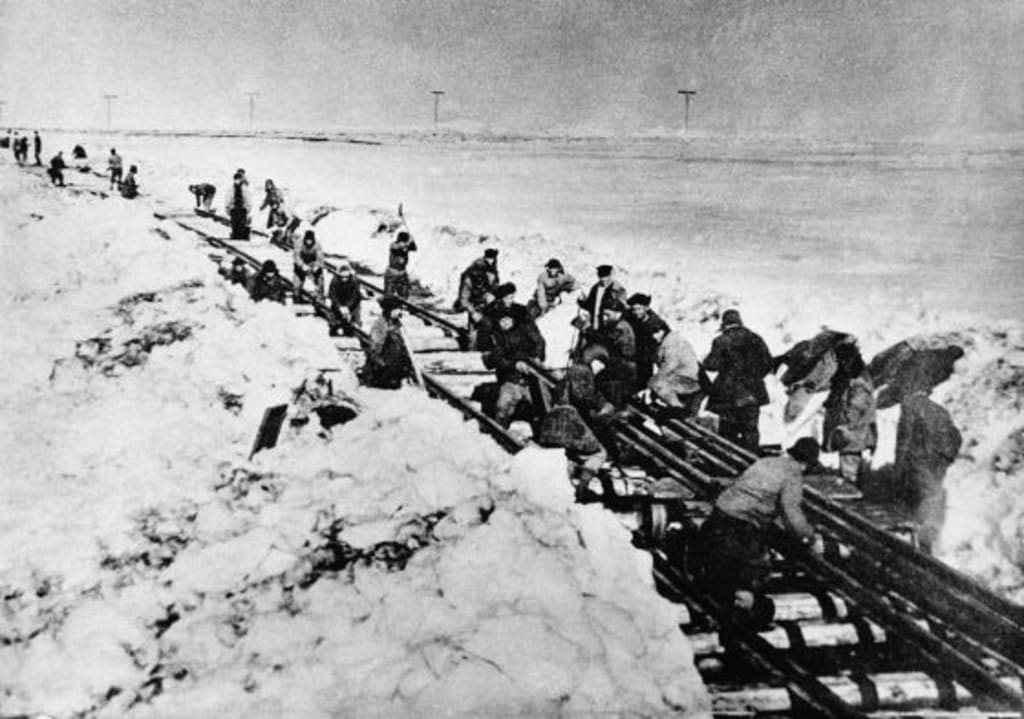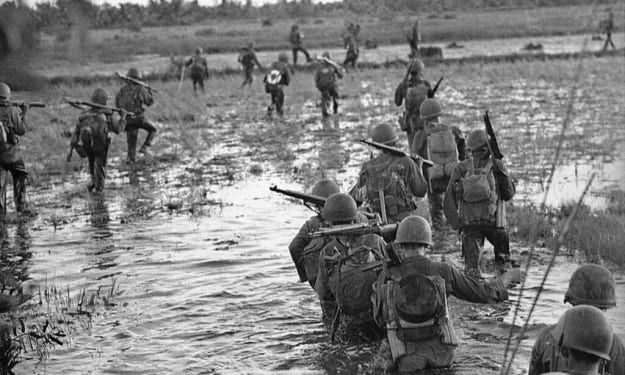One Woman's Survival in the Soviet Gulag Camps
Foreign political prisoners were incarcerated with criminals and murderers

Else Rutgers is ninety-two and was one of the very few foreign nationals who survived the Soviet Gulag camps.
Gulag camps began in the Soviet Union in 1919 and were a system of concentration and correctional labour camps.
Alongside criminals and recidivists, the majority of the Gulag prisoners were innocent people locked up for a variety of political reasons.
The camps started under Stalin's reign of terror were a horrific network where prisoners were slave labour used in limber production, mining and construction projects.
Out of 20 million incarcerated, 10% did not survive the ordeal.
Else Rutgers
Else was nineteen when she left Zurich for Moscow with her husband Wim. It would be twenty-five years before she returned home.
She was one of two hundred Swiss Communists who emigrated to Moscow after the Russian Revolution 1917. 1920 the Soviet Union was seen as a beacon of hope in Europe.
As a child, Else was raised to believe in socialism; her father was an active member of the Swiss Communist Party.
The couple arrived in Moscow in 1932 and found work quickly, Wim as an engineer and Else as a teacher. Despite this, life in the poverty-stricken area was challenging.
Capture
Life would take a dramatic turn for the couple in 1934 when Stalin began to sweep the Communist Party to eliminate alleged traitors and spies.
When German forces crossed into the USSR on 22nd June 1941, Else was imprisoned by the secret police. She was on a train with many other foreigners from Moscow to Saratov in the South.
After a horrendous journey in a cattle wagon, she arrived at Butyrka prison camp. Political prisoners would suffer the most in these camps. Along with the camp conditions, they were terrorised by their criminal campmates.
Butyrka Camp
The conditions were awful; it was bitterly cold with a scarce food supply. Else also recalls that the most painful thing was that she had been separated from her young son, Petja. She had no idea where he was.
As a woman in the camp, she faced the additional threat of rape or assault by the other prisoners and guards.
Else, who had previously divorced Wim, also lost touch with him. The couple had remained close, and she would not find any trace of him for many years.
Else was sentenced to five years in a Kazakhstan camp without a trial. Her crime was to be a dangerous political element to others.
Five Years
Once in Kazakhstan, Else dug a canal out of the frozen Kazakh ground for over a year. The only tool she was provided was a pickaxe.
After a year, she was transferred, and to her surprise and relief, she was offered to work in the camps laboratory as a researcher. Officials had seen on her file that she had worked in a lab in Zurich.
She was released from the camp in 1947, when she started to trace her son, fearing she would never find him.
Life After Gulag
Else was not allowed to return to Moscow. Gulag prisoners were not allowed near the Soviet city for fear they would stir up trouble.
The KGB watched her, but it was not all bad news. Else managed to track down
I couldn't believe it when I found out that Petja's aunt had tracked him down to an orphanage and had taken care of him until I got out. It was like a fairytale to find him again.
Mother and son went on to settle in the small town of Aleksandrov, north of Moscow. It was here that Else started to negotiate her return to Switzerland.
Repatriation
It took ten years for the Swiss authorities to negotiate Else's repatriation. She went home in 1957 without her son. Petja was not allowed to accompany her. It would be ten years until she would see him again.
Petja, now in his sixties, regularly flies from Moscow to visit his mother. She claims that he is the only reason she survived the camps.
Of the hundreds of people who emigrated to the Soviet Union, many were expelled in the 1930s on suspicion of being a spy; others were sent to the camps.
After Stalin died in 1953, the number of prisoners held in the Gulag decreased dramatically. The system was officially demolished in 1960.
It is estimated that twelve Swiss died in the camps and were tried and shot by the secret police. Else Rutgers was one of the luckier ones, although her ordeal still haunts her.
About the Creator
Sam H Arnold
Writing stories to help, inspire and shock. For all my current writing projects click here - https://linktr.ee/samharnold







Comments (8)
Excellent work! Keep up the fantastic effort—congrats!
So glad to learn about this brave and resilient woman. Thank you for this story and congratulations on Top Story.
The story beautifully captures the brutality and resilience of individuals caught in the political turmoil of the time. Great storytelling! 👏 Congratulations on the top story!
What a resilient person
so inspiring
So hard for us to fathom a life like this, the ordeal and trauma and incarceration for little or no reason or proof. Congratulations
Excellent work! This is a story more of us need to hear and share!
This was very interesting. Else has an inspiring story for sure.